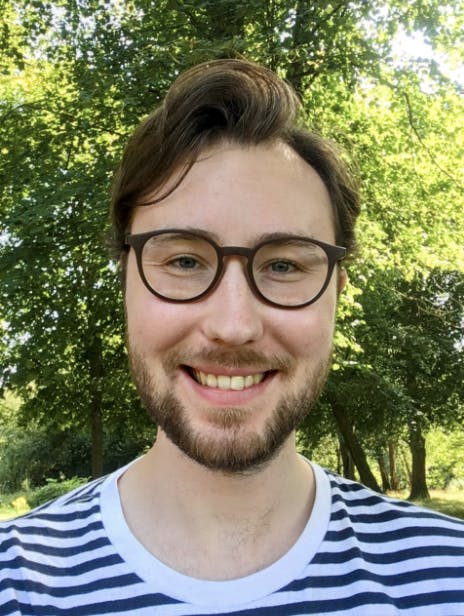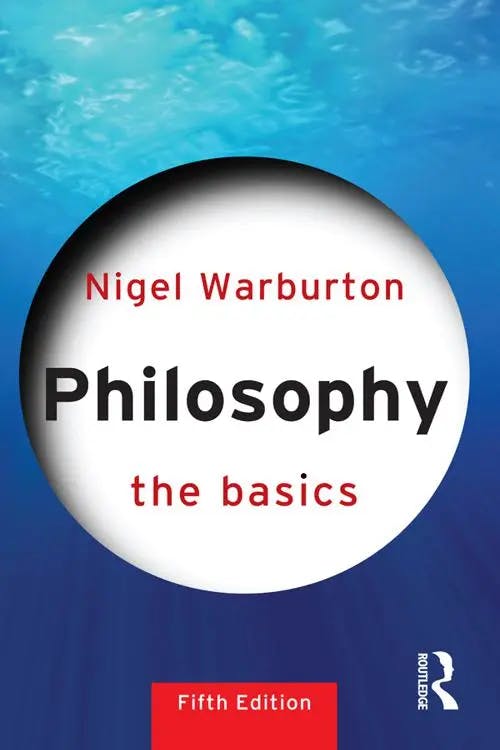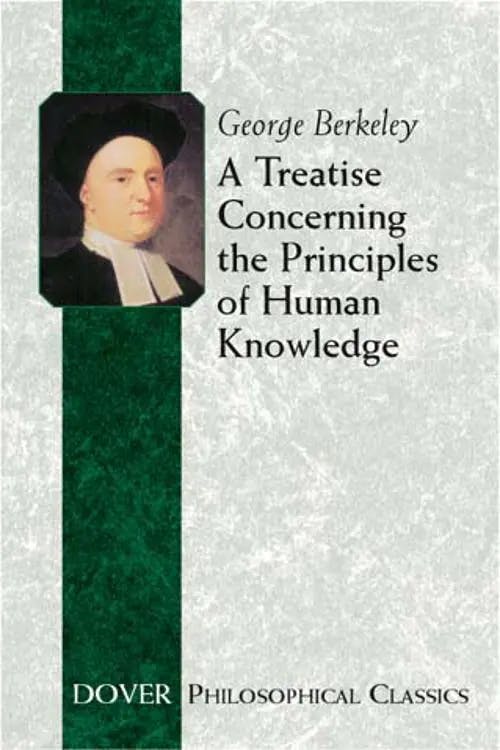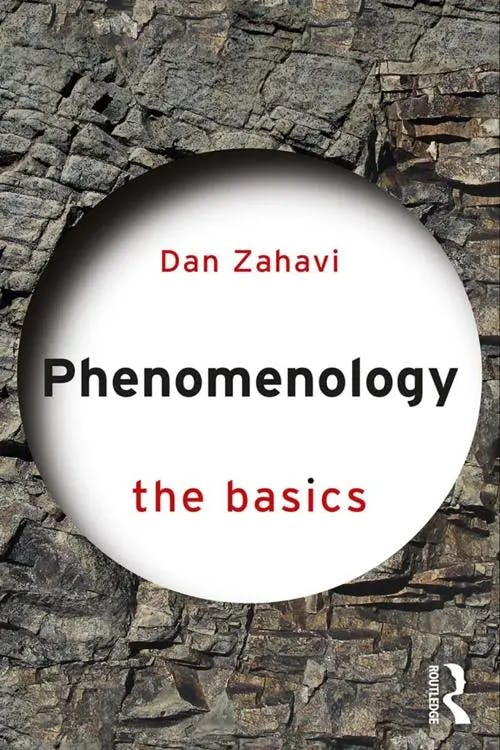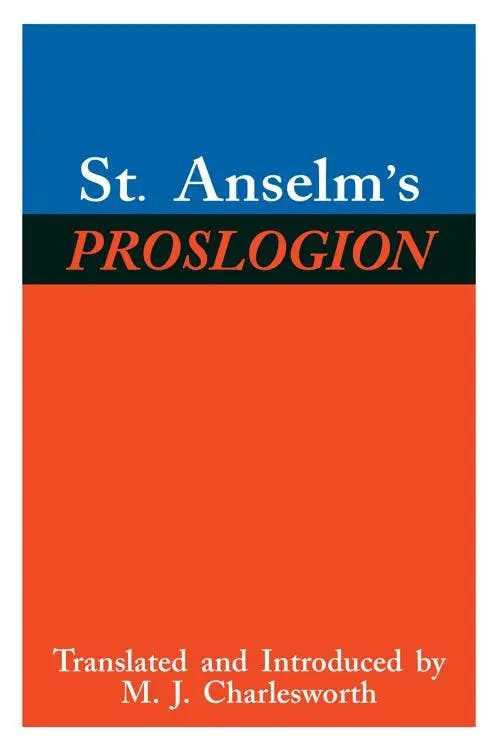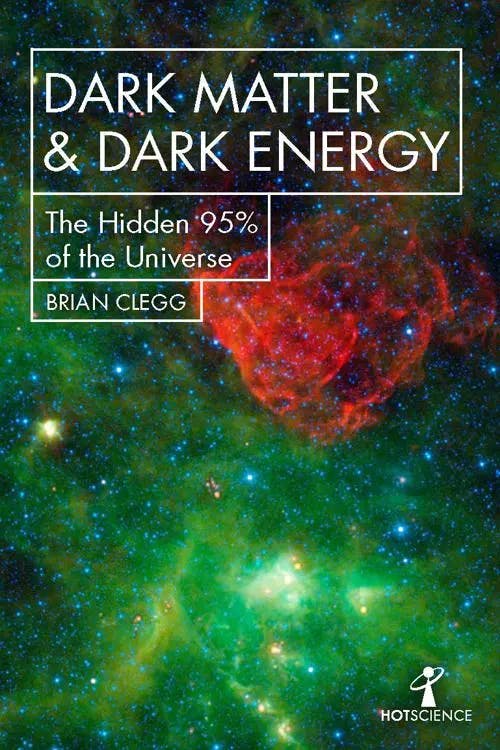What is Ontology?
MA, English Literature (University College London)
Date Published: 16.03.2023,
Last Updated: 06.11.2023
Share this article
Defining ontology
In philosophy, ontology is a branch of metaphysics which deals with such fundamental questions as “what exists?” and “what does it mean to exist?”. Ontology is metaphysics at its most abstract — concerned with the study of existence and reality itself — and so it is foundational to much philosophical thought.
Etymologically, ontology is derived from the two Greek words “onto” and “logos”, translated as “the study of being”. In the field of ontology, philosophers engage in debates on matters of existence — commonly in relation to God, the self, and reality itself. They also scrutinize what it means to “exist” in the first place.
Ontology, then, is an incredibly broad topic. As Thomas Hofweber summarizes in “Logic and Ontology” for The Stanford Encyclopedia of Philosophy (2021),
The borders here are a little fuzzy. But we have at least two parts to the overall philosophical project of ontology, on our preliminary understanding of it: first, say what there is, what exists, what the stuff of reality is made out of, secondly, say what the most general features and relations of these things are.
Pared back to its fundamentals, ontology is the study of no less than everything that exists. Because of this, any summary of the issues around ontology will necessarily be imperfect and non-exhaustive — different ontologies arguably underpin each religion and philosophical theory that has been put forward in human history. The scope of ontology can be overwhelming, and so in the following discussion we will handpick a few ontological examples across Western philosophy. We will also explore the fascinating relationship between ontology and the new discoveries that modern science continues to make about the nature of our reality.
What exists?
“What exists?” is the key question at the heart of ontology. In what sense does the world exist, and in what sense do we exist? In a way, our individual “worldview” is formed by our answers to these ontological questions. We each have fundamental worldviews which inform our thoughts and actions, with some assumptions being less consciously held than others. We might take it for granted, for example, that a tree exists in reality. We know that our experience of the tree is mediated through our subjective senses, and that other animals (including other humans) may experience a slightly different version of this tree through their senses, but we probably still assume that the tree possesses objective reality. Likewise, we may be fairly confident of our own existence, and the existence of other people who we interact with. Through interaction and communication about the world around us, we may conclude that we inhabit a largely shared reality with these people. Their reactions to us confirm our existence, and our reactions to them confirm theirs.
Throughout history, however, many philosophers have questioned such basic ontological assumptions. For the purposes of illustration, it may be helpful to briefly run through a few examples of divergent ontologies. As we will see, there are many different answers philosophers have come up with when considering the foundational question: “what exists?”
Plato
One of the key divisions in ontology is found with the status of abstract and concrete entities — does an idea have any meaningful existence, in the same way that physical matter does? For Plato (427–347 BCE), these abstract ideas (or Forms) are actually the true reality, and our concrete world is merely an illusion; an imperfect copy of the world of Forms beyond. This is known as his theory of Forms, which he famously expressed through his Analogy of the Cave (in which humans are cast as prisoners, chained inside the dark cave of our imperfect senses).
Epicurus
Epicurus (341–270 BCE), on the other hand, advances a more empirical view of reality. Unlike Plato, Epicurus trusts the senses as a means of acquiring knowledge of the world around us. He was also one of the first to propose an atomized theory of matter.
Aristotle
The ontology of Aristotle (384–322 BCE) is also more grounded in empiricism. Unlike Plato, Aristotle rejects the existence of universal, transcendental Forms — instead, he is more concerned with the particular forms of our physical reality. In Categories, Aristotle separates beings into ten different categories. As S. Mark Cohen and C. D. C. Reeve explain in “Aristotle’s Metaphysics”, The Stanford Encyclopedia of Philosophy (2021),
They [Aristotle’s categories] include substance, quality, quantity, and relation, among others. Of these categories of beings, it is the first, substance (ousia), to which Aristotle gives a privileged position.
At the abstract level, Aristotle’s ontology begins with his concept of the Prime Mover — the initial cause that lies behind everything that exists. He developed his theories in Physics and The Metaphysics; interrogating the nature of substance, identifying the causes behind each thing that exists, and laying the groundwork for the scientific methodology which would follow.
René Descartes
René Descartes (1596–1650) is best known for one of the most famous lines in all of ontology: “I think, therefore I am” (Discourse on Method, 1637 [2012]). Although reality may be deceptive, and our thoughts may be confused, Descartes satisfies his doubts over the ontological existence of the self by recognizing that there is a self to do the doubting in the first place. As Nigel Warburton summarizes in Philosophy: The Basics (2013),
[Descartes] argued that even if all my experience was the product of someone or something deliberately deceiving me [...] the very fact that I was being deluded would show me something certain. It would show me that I exist, since if I did not exist there would be nothing for the deceiver to deceive. This argument is often known as the Cogito, from the Latin ‘Cogito ergo sum’, which means ‘I think therefore I am’.
Nigel Warburton
[Descartes] argued that even if all my experience was the product of someone or something deliberately deceiving me [...] the very fact that I was being deluded would show me something certain. It would show me that I exist, since if I did not exist there would be nothing for the deceiver to deceive. This argument is often known as the Cogito, from the Latin ‘Cogito ergo sum’, which means ‘I think therefore I am’.
By giving such primacy to the power of reason, Descartes was making a radical statement of rationalist philosophy.
Descartes is also well-known for his dualism — his belief in the separation of mind and body. For Descartes, as the mind and body are composed of separate substances, there is reason to believe that the mind can continue after the death of the body.
George Berkeley
For George Berkeley (1685–1753), the ontological status of existence is tied up with the act of perception itself — a view which is known as immaterialism or subjective idealism. In A Treatise Concerning the Principles of Human Knowledge (1710 [2012]), Berkeley contends:
For as to what is said of the absolute existence of unthinking things without any relation to their being perceived, that seems perfectly unintelligible. Their esse is percipi, nor is it possible they should have any existence out of the minds or thinking things which perceive them.
George Berkeley, Thomas J. McCormack
For as to what is said of the absolute existence of unthinking things without any relation to their being perceived, that seems perfectly unintelligible. Their esse is percipi, nor is it possible they should have any existence out of the minds or thinking things which perceive them.
As Warburton explains, Berkeley’s subjective idealism would mean that “when I leave a room it ceases to exist, when I shut my eyes the world disappears, when I blink whatever is in front of me is no longer there — provided, of course, no one else is perceiving these things at the time” (2013).
The double-slit experiment in quantum physics (first conducted by Thomas Young), is particularly interesting in relation to Berkeley’s ontology. In Cosmos: Possible Worlds (Druyan and Braga, 2020), Neil deGrasse Tyson provides a helpfully concise explanation of the double-slit experiment:
Although the experiment does not support Berkeley’s argument that unobserved matter does not exist at all, it shows that matter can behave differently depending on whether it is being observed or not.
Immanuel Kant
For Immanuel Kant (1724–1804), reality has two aspects: the phenomenal realm of the senses, and the noumenal realm beyond our senses. Like Plato, Kant believes that we are not able to access all of reality through our senses. But unlike Plato, Kant did not believe that it was possible to have knowledge of this noumenal realm. As Warburton explains in A Little History of Philosophy (2011),
What is reality like? Kant thought that we can’t ever have a complete picture of the way things are. We’ll never learn anything directly about what he calls the noumenal world, whatever it is that lies behind appearances.
A world of different ontologies
As we can see, there are many radically different expressions of ontology throughout philosophy — and we have only really scratched the surface. Other notable areas (to name only a few) include:
- Substance monism, theorized by Baruch Spinoza (1632–1677), is an ontology which views the whole universe (including God) as belonging to one and the same substance.
- Phenomenologists, such as Edmund Husserl (1859–1938) and Martin Heidegger (1889–1976), seek to analyze the experience of consciousness itself. In Phenomenology: The Basics (2018), Dan Zahavi argues:
Over the years, phenomenology has made major contributions to many areas of philosophy and offered groundbreaking analyses of topics such as intentionality, perception, embodiment, emotions, self-consciousness, intersubjectivity, temporality, historicity, and truth.
Dan Zahavi
Over the years, phenomenology has made major contributions to many areas of philosophy and offered groundbreaking analyses of topics such as intentionality, perception, embodiment, emotions, self-consciousness, intersubjectivity, temporality, historicity, and truth.
- Empiricism, advanced by such philosophers as John Locke (1632–1704) and David Hume (1711–1776), holds that we can only make meaningful ontological statements about the nature of reality with reference to the evidence of our senses.
- The brain in a vat (BIV) thought experiment. Are we a brain in a vat, being fed electrical impulses which our brain then translates into what we think of as our bodily experience of reality? Would it matter if this was the case? This is also related to the simulation hypothesis (popularized by Nick Bostrom), which suggests that our reality is simulated by vastly advanced supercomputers. The closer we get to developing such computing power ourselves, the more likely it is that we are already in a simulated reality (according to the hypothesis). Portrayals of simulated realities abound in popular culture, with The Matrix (Wachowski and Wachowski, 1999) being the most famous example.
It is arguable that each philosophical and religious disagreement (over the precise nature of reality, the mind, God, the self, and so on) would constitute a separate ontology of its own. To explore these topics in more depth, you can visit the extensive Philosophy section of Perlego’s online library.
Case study example: the ontological argument
One of the key ontological questions that philosophers are concerned with is the question of God’s existence. As its name suggests, the Ontological Argument for God’s existence is closely bound up with ontology itself — with being, and what it means to be. It is true, too, that other arguments for the existence of God are (by definition) concerned with ontology, although they go by different names.
The Ontological Argument was most famously formulated by Saint Anselm of Canterbury (1033–1109) in Proslogion (1077–78 [1979]), before being developed by later philosophers such as Descartes and the contemporary philosopher Alvin Plantinga, among others. In Anselm’s words,
[God is] something than which nothing greater can be thought. [...] And surely that-than-which-a-greater-cannot-be-thought cannot exist in the mind alone. For if it exists solely in the mind even, it can be thought to exist in reality also, which is greater. (1077–78 [1979])
Saint Anselm
[God is] something than which nothing greater can be thought. [...] And surely that-than-which-a-greater-cannot-be-thought cannot exist in the mind alone. For if it exists solely in the mind even, it can be thought to exist in reality also, which is greater. (1077–78 [1979])
Anselm’s argument here provides a fascinating insight into the subject of ontology. It attempts to prove God’s existence a priori — without reference to prior experience, and predicated on the definition of God alone. In a basic sense, then, the Ontological Argument can be summarized as:
- God is, by definition, the most perfect and supreme being.
- In order for a being to be perfect and supreme, existence must be one of its qualities.
- Therefore, as God is the most perfect and supreme being, God exists.
The argument has attracted a large amount of criticism, even in Anselm’s time. One of the most common criticisms is that the logic of the argument is absurd, as it can be used to “prove” the existence of anything. It could also be said, for example, that a magical dragon is the most perfect and supreme being. If the logic of the Ontological Argument is adhered to, then this supreme dragon must also exist. Gaunilo of Marmoutiers famously employed this criticism, using the example of a perfect island (Warburton, 2011).
Immanuel Kant’s influential criticism is that the existence of something cannot be inferred from its definition alone, as this would be a tautological argument (a circular argument which uses its own assumptions to prove itself). As Warburton explains in Philosophy: the Basics (2013),
Listing existence as a further essential property of a perfect being is making the mistake of treating existence as a property rather than as the precondition of anything having any properties at all. Kant points out that the idea of God’s existence is already assumed in the basic definition of God, and that this is simply a feature of how we use language to discuss concepts. The basic definition of something, Kant argues, cannot then be used as proof of its actual existence.
Nigel Warburton
Listing existence as a further essential property of a perfect being is making the mistake of treating existence as a property rather than as the precondition of anything having any properties at all. Kant points out that the idea of God’s existence is already assumed in the basic definition of God, and that this is simply a feature of how we use language to discuss concepts. The basic definition of something, Kant argues, cannot then be used as proof of its actual existence.
The existence of God (or not) remains one of the key ontological questions, and the Ontological Argument itself is an intriguing example of the ways in which philosophers can tie themselves in knots over matters of ontology, language, and precise definitions.
The future of ontology
As we have seen, there is a rich history of ontological debate — and this continues to influence discussions on the nature of existence right into the present day. But what about the future?
Although it is difficult to make definitive predictions, it is perhaps inevitable that science will continue to have a big part to play. Scientific advances have already revealed much about the nature of observable reality, and this has informed the ontology of modern philosophers. But science does not stand still — there are still many questions about the nature of reality that remain unanswered, and new scientific discoveries will have an impact upon ontology in the future.
In the field of cosmology, for example, dark matter and dark energy are intrinsically bound up with ontology’s fundamental question: “what exists?” Many scientists now accept that the ordinary matter we think of as the universe is actually only 5% of what exists — and that the remaining 95% is made of mysterious dark matter and dark energy. As Brian Clegg explains in Dark Matter and Dark Energy (2019),
If the theories of dark matter and dark energy are correct, around 27 per cent of the universe is dark matter and 68 per cent dark energy, leaving only around 5 per cent as everything that we directly observe.
Brian Clegg
If the theories of dark matter and dark energy are correct, around 27 per cent of the universe is dark matter and 68 per cent dark energy, leaving only around 5 per cent as everything that we directly observe.
As their names suggest, dark matter and dark energy cannot currently be seen or measured. Although experiments continue, their darkness has not yet been illuminated by scientific observation. Despite this, the existence of dark matter and dark energy is hypothesized as necessary in order to explain the structure and behavior of the universe. According to general relativity, for example, the universe’s rate of expansion would be expected to slow down — but the rate of expansion is actually accelerating. As Clegg continues, “Something unknown was adding energy to drive the expansion of space, accelerating the rate at which galaxies separated from each other” (2019).
As scientific discoveries continue, ontologists will have no shortage of new material to ponder.
Further ontology reading on Perlego
Aristotle (2017) The Metaphysics. Dover Publications. Available at: https://www.perlego.com/book/546380/the-metaphysics-pdf
Aristotle (2017) Physics. Dover Publications. Available at: https://www.perlego.com/book/510326/physics-pdf
Dudley, W. and Engelhard, K. (2014) Immanuel Kant. Taylor and Francis. Available at: https://www.perlego.com/book/1558665/immanuel-kant-key-concepts-pdf
Effingham, N. (2013) An Introduction to Ontology. Polity Press. Available at: https://www.perlego.com/book/1535598/an-introduction-to-ontology-pdf
Epicurus (2019) The Philosophy of Epicurus. Dover Publications. Available at: https://www.perlego.com/book/1236448/the-philosophy-of-epicurus-pdf
Evans, G. (2005) Anselm. Bloomsbury Publishing. Available at: https://www.perlego.com/book/806181/anselm-pdf
Jacquette, D. (2014) Ontology. Taylor and Francis. Available at: https://www.perlego.com/book/1561327/ontology-pdf
Meyers, R. (2014) Understanding Empiricism. Taylor and Francis. Available at: https://www.perlego.com/book/1562206/understanding-empiricism-pdf
Plato. (2021) Plato: The Complete Works. Classics HQ. Available at: https://www.perlego.com/book/3119113/plato-the-complete-works-pdf
Ontology FAQs
What is ontology in simple terms?
What is ontology in simple terms?
What does ontological mean?
What does ontological mean?
What is the difference between ontology and epistemology?
What is the difference between ontology and epistemology?
What are the best books on ontology?
What are the best books on ontology?
Bibliography
Anselm (1979) St. Anselm’s Proslogion. University of Notre Dame Press. Available at: https://www.perlego.com/book/856060/st-anselms-proslogion-with-a-reply-on-behalf-of-the-fool-by-gaunilo-and-the-authors-reply-to-gaunilo-pdf
Berkeley, G. (2012) A Treatise Concerning the Principles of Human Knowledge. Edited by T. McCormack. Dover Publications. Available at: https://www.perlego.com/book/111076/a-treatise-concerning-the-principles-of-human-knowledge-pdf
Clegg, B. (2019) Dark Matter and Dark Energy. Icon Books. Available at: https://www.perlego.com/book/969123/dark-matter-and-dark-energy-the-hidden-95-of-the-universe-pdf
Cohen, S. M. and C. D. C. Reeve, "Aristotle’s Metaphysics", The Stanford Encyclopedia of Philosophy. Winter 2021 Edition. Available at: https://plato.stanford.edu/archives/win2021/entries/aristotle-metaphysics/
Descartes, R. (2012) Discourse on Method and Meditations. Translated by G. Ross. Dover Publications. Available at: https://www.perlego.com/book/110237/discourse-on-method-and-meditations-pdf
Hofweber, T. (2021) "Logic and Ontology", The Stanford Encyclopedia of Philosophy. Spring 2021 Edition. Available at: https://plato.stanford.edu/archives/spr2021/entries/logic-ontology/
Warburton, N. (2011) A Little History of Philosophy. Yale University Press.
Warburton, N. (2013) Philosophy: The Basics. 5th edn. Taylor and Francis. Available at: https://www.perlego.com/book/1508905/philosophy-the-basics-pdf
Warburton, N. (2014) Philosophy: The Classics. 4th edn. Taylor and Francis. Available at: https://www.perlego.com/book/1557108/philosophy-the-classics-pdf
Zahavi, D. (2018) Phenomenology: The Basics. Taylor and Francis. Available at: https://www.perlego.com/book/1567875/phenomenology-the-basics-pdf
Filmography
Cosmos: Possible Worlds (2020) Directed by Ann Druyan and Brannon Braga. Available at: Disney+.
The Matrix (1999) Directed by Lana Wachowski and Lilly Wachowski. Available at: Sky Cinema.
MA, English Literature (University College London)
Andy Cain has an MA in English Literature from University College London, and a BA in English and Creative Writing from Royal Holloway, University of London. His particular research interests include science fiction, fantasy, and the philosophy of art. For his MA dissertation, he explored the presence of the sublime in Shakespeare’s plays.
